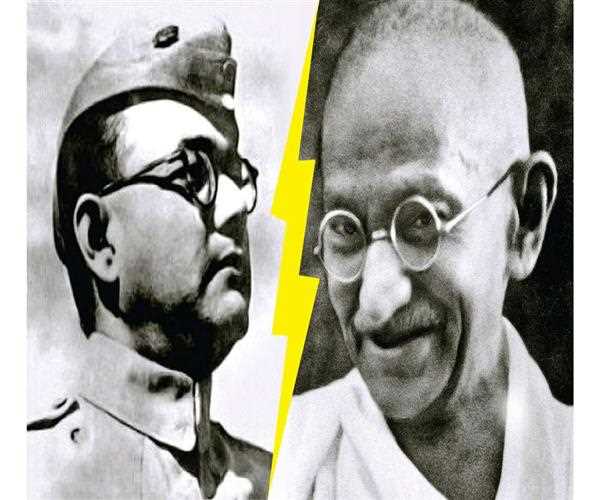
21-Jun-2024 , Updated on 6/21/2024 3:36:20 AM
Clash of Titans: The Divergent Paths of Subhash Chandra Bose and Mahatma Gandhi
Netaji Subhash Chandra Bose and Mahatma Gandhi are two of India's most renowned freedom fighters, yet their paths diverged sharply, often clashing with dramatic intensity. Bose, a beacon of revolutionary fervor, rose as a true hero against British colonial rule. In stark contrast, Gandhi's methods and decisions frequently cast him as an impediment to Bose's relentless pursuit of freedom.
Bose was a prodigious student, securing second rank in his matriculation exam in 1913 and earning a place at the prestigious Presidency College of Calcutta. However, a pivotal incident in 1916 marked his first foray into political activism. When his racist history teacher, Professor E.F. Oaten, was manhandled by Indian students, Bose emerged as a key participant and was expelled. This event profoundly altered Bose's life, setting him on a path of defiance against colonial oppression.
In 1920, Bose, then an ICS officer, keenly observed Gandhi's burgeoning non-cooperation movement. Despite a promising and secure career, Bose's fervor for India's freedom led him to abandon his position and join the struggle. Gandhi, recognizing Bose's potential, advised him to support Chittaranjan Das in Bengal. Bose's political career soared, and by 1938, he had ascended to the presidency of the Congress Party.
Bose's tenure as Congress president laid bare a stark ideological rift with Gandhi. Bose championed direct action against the British, including an armed revolution, seizing favorable international conditions. In contrast, Gandhi and his followers, steadfast in their commitment to non-violence, shunned such drastic measures.
The ideological clash reached its zenith in 1939, when Bose was re-elected as Congress president despite Gandhi's fierce opposition. The internal strife escalated, with Gandhi's supporters demanding that Bose form his working committee according to Gandhi's wishes. This undemocratic pressure forced Bose to resign, solidifying Gandhi's role as a villain in Bose's eyes and those of his loyal supporters.
Undeterred, Bose founded the All India Forward Bloc in 1939, uniting various leftist organizations. Despite their ideological differences, Bose and Gandhi maintained a complex relationship marked by mutual respect. Bose continued to support Gandhi's Quit India Movement in 1942, viewing his own militant struggle as complementary to Gandhi's non-violent approach.
Bose's reverence for Gandhi was evident when he addressed him as the "Father of the Nation" during a radio broadcast from Burma. Gandhi, in turn, honored Bose as the "Prince of the Patriots," acknowledging his unwavering dedication and sacrifice. This intricate relationship revealed that, despite their divergent methods, their ultimate goal of a free India united them in spirit.
Subhash Chandra Bose's life was a testament to his unyielding commitment to India's freedom. His clash with Gandhi's ideology highlighted the diverse approaches within the freedom movement. Bose's heroic efforts and sacrifices continue to inspire generations, while Gandhi's contrasting methods and the political dynamics of the time offer a deeper understanding of India's complex struggle for independence.

Student
I am a content writter !
Join Our Newsletter
Subscribe to our newsletter to receive emails about new views posts, releases and updates.
Copyright 2010 - 2026 MindStick Software Pvt. Ltd. All Rights Reserved Privacy Policy | Terms & Conditions | Cookie Policy